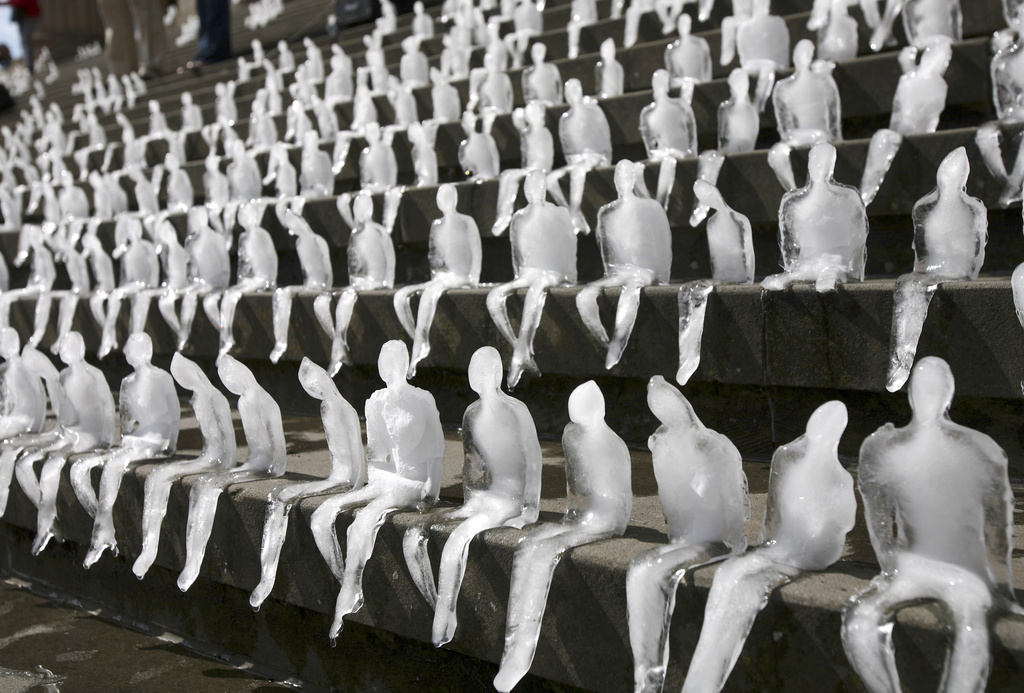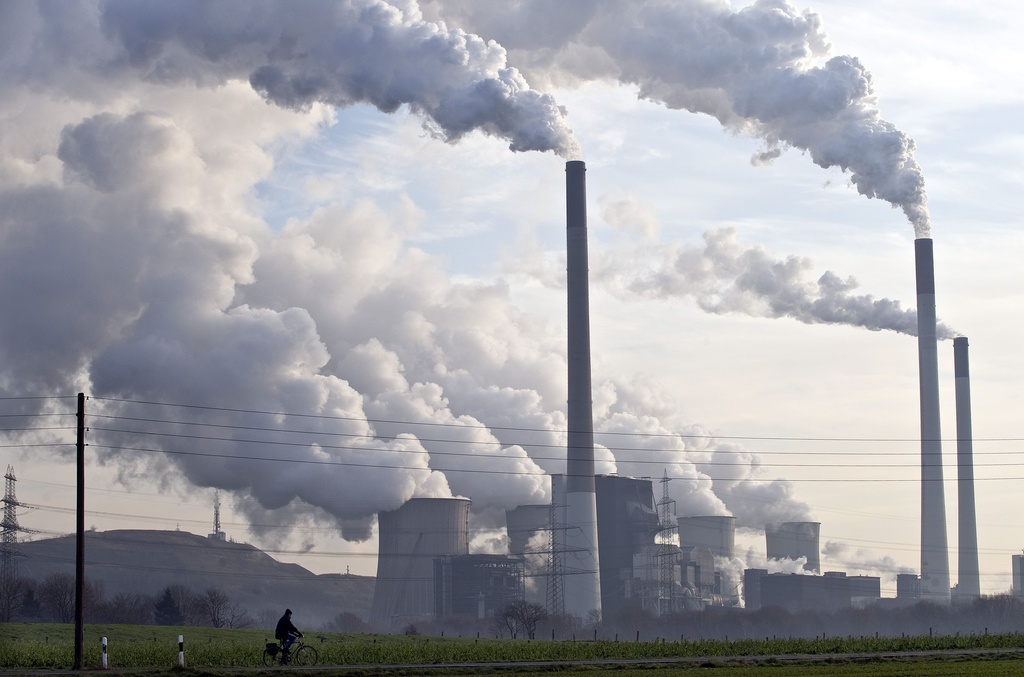Swiss take long, hard look at green policies

A lack of significant progress in global climate talks in recent years is forcing Switzerland to rethink its approach to environmental problems.
Swiss green policy is now intrinsically intertwined with international and European Union policy. But this poses a problem since multilateral attempts at coordinated global action are falling short, according to a report by the Federal Environment Office.
It is “virtually impossible today” to formulate an independent environmental policy, it states.
As such, “Switzerland, at the heart of Europe, needs to consider this new international context in deciding which direction to take its international environmental policy”, the report warns.
The report takes stock of Swiss environmental policy and looks at priorities for the year ahead.
The last such review was in 1991. Since then environment policies have developed at every level – nationally, bilaterally, regionally and globally – and so the government decided it was time to reassess where it stands.
There are over 500 international and regional accords currently in place to do with the environment. It’s actually a bleak picture, according to the Environment Office.
“The global environmental framework is increasingly characterised by a proliferation and fragmentation of accords and institutions, by the absence of a global vision and of a central political author… and inadequate financial means,” says the report.
It notes that the participation of negotiating blocks such as the EU and the Group of 77 and big emitters such as Brazil and China is “complicating more and more the development of ambitious and effective international policies”.
Balancing act
In squaring up to reality, Switzerland intimates that the way forward through these muddied waters may not be an over-arching solution but a mixed bag of national, regional and global accords governing the environment.
The key now is finding the right mix, Franz Perrez, head of international affairs at the Environment Office, told swissinfo.ch at the report launch.
“It’s a balance in both directions. I think much of Swiss policy would not be possible without the international framework.”
“At the national level we would certainly be less ambitious if we did not have the stimulation, motivation and pressure of the international framework. At the same time, because we know at the national level we cannot solve issues alone, we are also pushing at the international level towards an ambitious framework.”
New paradigm
Jorge Vinuales, an environmental law expert at the Graduate Institute of International Development Studies in Geneva, agreed that the global paradigm was changing.
In light of the “very slow” progress in multilateral approaches to regulate climate change, it is “likely that the future climate change regime will be a patchwork of domestic systems – or assimilated systems such as that of the European Union – loosely coordinated at the international level”, he told swissinfo.ch.
From the 1970s onwards the environment was seen as a “textbook example” of the need for international cooperation because the problems went beyond political boundaries.
“Now, it is important to distinguish among different environmental problems. Some problems, such as ozone depletion and climate change are indeed global and would be best tackled through a multilateral process,” Vinuales said.
“But some others, such as short-range pollution or the regulation of international watercourses are best tackled at a regional, bilateral or even local level. Applying a multilateral approach to an essentially local problem may be problematic.”
Rio+20
In sizing up where it stands, Switzerland also set out its international environmental priorities for 2012. (See side panel)
The list is long: climate stability, biodiversity protection and sustainability, chemical and waste management, water and forests protection and sustainability, green governance, balancing trade and environmental rules, financing and cooperation with the EU.
More specifically the focus will include attempts to join up with the EU emission quotas trading system and making progress in green technologies.
This year is the 20th anniversary of the 1992 Earth Summit. Rio+20 in June will be addressing the so-called green economy and governance of sustainable development.
Bern says the transition towards a green economy needs to be based on national strategies, transparency in markets and business on ecological issues, sustainable agriculture, efficient use of resources and ending our reliance on fossil fuels. Switzerland will also push in Rio for a stronger and more effective framework for governing the environment.
The Environment Office says that even if such international conferences only make slight progress, they serve a purpose of putting environmental issues at the top of the global political agenda for a few days.
Climate
Adoption by the cabinet of a report on adaptation to climate change; progress on how to implement provisions set out in the revised law on CO2; talks with the EU on joining its system on greenhouse gas emission quota trading.
Green economy
(Central theme of the Rio+20 conference in June). Report on the progress of the implementation of six fields of action for a green economy (cleantech, greening of the fiscal system, etc).
Nature
Information campaign on Swiss parks; biodiversity strategy; revision of hunting law.
Multilateral action to tackle environmental issues has been growing since the 1960s. Here are some of the major stepping-stones along the way.
1968 A symposium in Dallas talks about the need for collective action
1971 Experts from 14 nations gather in Stockholm to discuss climate change and issue report with warnings about the risk of severe climate change
1978 International workshop on climate issues held in Vienna with support of WMO and ICSU
1979 Around 300 experts from 50 countries meet in Geneva to examine review papers and make recommendations
1979 WMO and ICSU launched World Climate Programme
1985 International climate science community meet in Villach
1986 UNEP, WMO and ICSU set up Advisory Group on Greenhouse Gases
1982 Policy discussions start among nations
1985 Vienna Convention for the Protection of the Ozone Layer is signed by 20 nations
1987 Montreal Protocol of Vienna Convention
1989 NGOs form Climate Action Network
1988 Intergovernmental Panel on Climate Change created
1990 Second world climate conference
1992 Rio Earth Summit attended by world leaders

In compliance with the JTI standards
More: SWI swissinfo.ch certified by the Journalism Trust Initiative






You can find an overview of ongoing debates with our journalists here. Please join us!
If you want to start a conversation about a topic raised in this article or want to report factual errors, email us at english@swissinfo.ch.